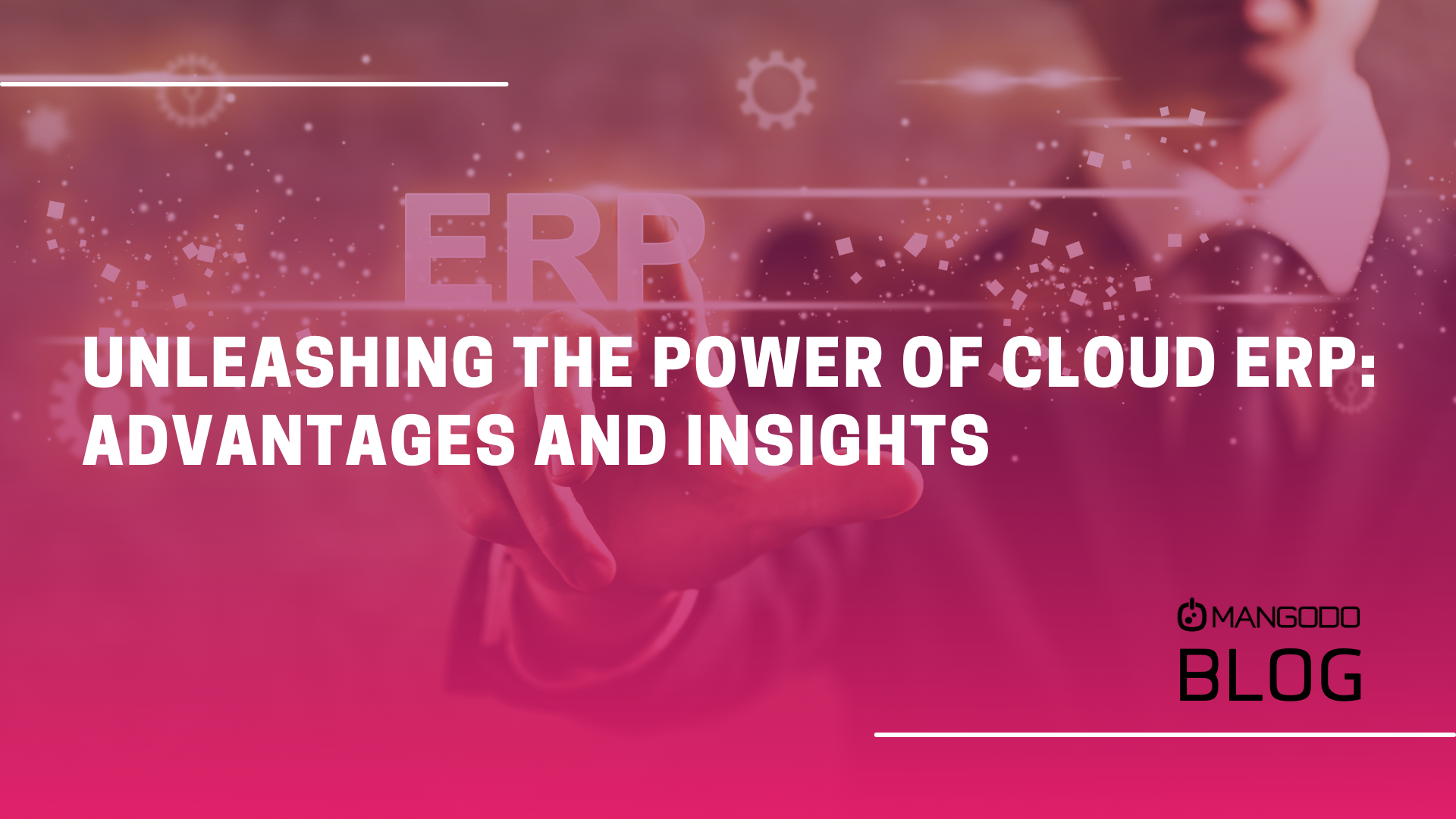Unleashing the Power of Cloud ERP: Advantages and Insights
In the ever-evolving landscape of business technology, Cloud ERP (Enterprise Resource Planning) has emerged as a transformative force, revolutionizing the way organizations manage and optimize their resources. In this blog post, we'll explore the concept of Cloud ERP, its key features, and the numerous advantages it brings to businesses.
What is Cloud ERP?
Enterprise Resource Planning (ERP) systems are software solutions that integrate and streamline various business processes across an organization. Traditionally, ERP systems were deployed on-premises, requiring significant upfront investments in hardware, software, and maintenance. However, with the advent of cloud computing, ERP has taken a leap forward, giving rise to Cloud ERP.
Cloud ERP is a software-as-a-service (SaaS) model that hosts ERP applications on remote servers, accessible via the internet. This means that businesses no longer need to invest in physical infrastructure or worry about complex IT management. Instead, they can leverage the power of the cloud to access their ERP systems anytime, anywhere.
Advantages of Cloud ERP:
Cost Efficiency:
-
One of the most significant advantages of Cloud ERP is cost efficiency. Traditional ERP systems often entail hefty upfront costs for hardware, software licenses, and maintenance. Cloud ERP operates on a subscription model, allowing businesses to pay for the services they use, reducing the initial financial burden.
Scalability:
-
Cloud ERP offers unparalleled scalability, enabling organizations to easily adapt to changing business needs. Whether a company is experiencing growth or downsizing, cloud-based systems can quickly adjust resources to accommodate fluctuations in demand.
Accessibility and Flexibility:
-
Cloud ERP provides the flexibility of accessing critical business data and processes from any location with an internet connection. This is especially beneficial in today's dynamic work environment, where remote work and flexible schedules have become the norm.
Automatic Updates and Maintenance:
-
Cloud ERP providers handle software updates and maintenance, ensuring that businesses always have access to the latest features and security patches without the need for manual intervention. This allows organizations to focus on core business activities rather than managing IT infrastructure.
Enhanced Collaboration:
-
Cloud ERP fosters collaboration by providing real-time access to data for all authorized users. This facilitates better communication and coordination among different departments, leading to improved decision-making and overall efficiency.
Security:
-
Contrary to common misconceptions, Cloud ERP often offers robust security measures. Reputable providers invest heavily in data security, encryption, and compliance certifications, ensuring that sensitive business information is protected against potential threats.
Integration and Customization:
-
Cloud ERP systems are designed to seamlessly integrate with other cloud-based applications and services. This facilitates a more comprehensive and interconnected business ecosystem, allowing organizations to tailor their ERP solutions to meet specific requirements.
In conclusion, Cloud ERP is a game-changer for businesses looking to streamline operations, enhance efficiency, and adapt to the ever-changing business landscape. The advantages of cost efficiency, scalability, accessibility, automatic updates, enhanced collaboration, security, and integration make Cloud ERP a compelling choice for organizations aiming to stay competitive in the digital era. As technology continues to advance, embracing Cloud ERP is not just an option; it's a strategic imperative for sustainable growth and success.
